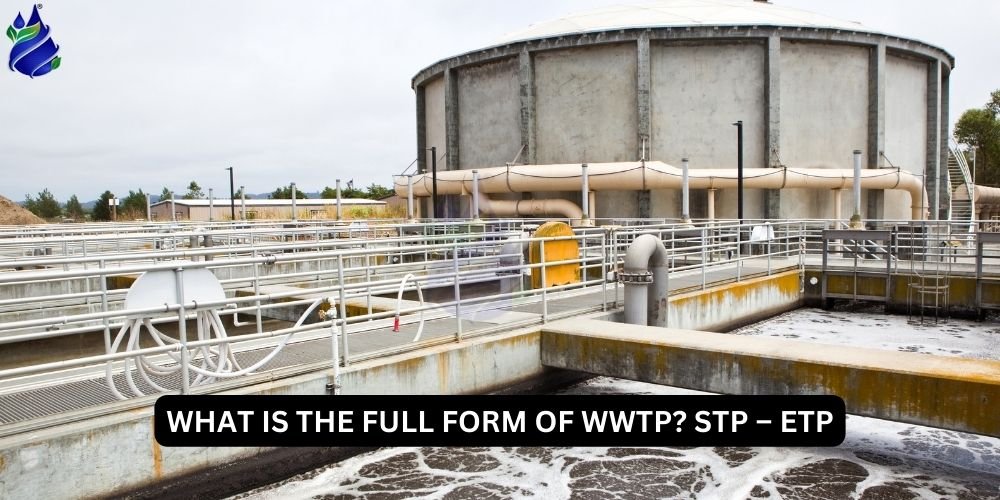
Introduction
WWTP, the full form of wwtp is wastewater treatment plant is a plant created to handle and clean up contaminated water from different commercial, industrial, and residential sources. Its main job is to filter out contaminants and pollutants from wastewater so that it can be reused or released back into the environment. To properly purify the water, the treatment procedure usually consists of multiple phases. Large particles and solids like plastics, paper, and other materials are first removed using screens or filters. After that, the water passes through primary treatment, where oils and grease float to the top and are skimmed off, while suspended solids drop to the bottom as sludge.
The water through steps in wwtp gets further purified by biological processes used in the secondary treatment phase. The organic debris in the water is broken down by beneficial microbes, which lowers the concentrations of dangerous contaminants. Aeration is frequently used in this stage to encourage the growth of these microorganisms and improve their capacity to break down pollutants. Some facilities carry out an advanced or tertiary treatment step after secondary treatment to make sure the water satisfies particular quality requirements. To get rid of any leftover contaminants, pathogens, or microbes, this step also uses filtration, disinfection (usually with chlorine or UV light), and chemical procedures.
After going through these phases of treatment, the water is deemed acceptable to be released back into rivers or streams or to be utilized again for a variety of non-potable uses, like industrial activities, irrigation, or groundwater replenishment.
Types of Wastewater Treatment Plant
Wastewater treatment plants comprise a range of systems, such as ETP which stands for effluent treatment plant and stp full-form effluent treatment plant, that are specifically engineered to meet the needs of different wastewater types and treatment objectives.
- Sewage Treatment Plant- The treatment of household wastewater from residential and municipal sources is the main function of sewage treatment plants (STPs). STPs usually include wastewater treatment plant process, which uses methods like screening and sedimentation to remove solids, and secondary treatment, which uses microbes and biological processes to break down organic materials. Before discharge or reuse, tertiary treatment may be necessary to further cleanse the water.
- Membrane Bioreactors: MBRs use a physical barrier to separate treated water from microorganisms and particles, producing high-quality effluent. MBRs combine biological treatment with membrane filtration.
- Effluent Treatment Plant- ETPs, or effluent treatment plants, manage industrial wastewater from chemical plants, manufacturing facilities, and other industrial activities. They are designed to eliminate pollutants unique to industrial activity; to do this, they frequently use sophisticated treatment techniques such as chemical coagulation, filtration, biological treatment, and occasionally specialized technology like activated carbon filtering or reverse osmosis.
Importance of Wastewater Treatment Plants
Wastewater treatment plants are extremely important for the following reasons:
- Environmental Protection: These plants stop wastewater by inculcating wastewater treatment steps that have been improperly or mistreated from entering water bodies, which can seriously damage ecosystems. They contribute to maintaining water quality, which protects aquatic life and biodiversity, by eliminating contaminants and dangerous materials.
- Public health: Waterborne infections and illnesses are less likely to spread when wastewater is treated effectively. In addition to protecting public health, treating sewage and industrial effluents lowers the possibility of contaminating sources of drinking water and stops the spread of diseases like cholera, typhoid, and other disorders related to water.
- Resource Conservation- Resource conservation is made possible by wastewater treatment facilities. Treated water, sometimes referred to as recycled or reclaimed water, helps preserve freshwater resources by being used for groundwater replenishment, industrial processes, and irrigation. Furthermore, certain treatment procedures make it easier to recover valuable components for reuse or resale, such as nitrogen or phosphorus.
Factors to consider when thinking about establishing a wwtp
When preparing to build a wastewater treatment plant, the following important considerations must be taken into account:
- Wastewater Characteristics: Choosing the right treatment techniques and technologies requires a thorough understanding of the makeup and variability of the wastewater, including flow rates, pollutants, and contaminants.
- Treatment Objectives: Whether it's resource recovery, water reuse, regulatory compliance, or pollution control, having clearly defined treatment goals informs the plant's design and operation.
- Technology Selection: It's critical to select appropriate treatment methods and technologies depending on wastewater composition, effectiveness, affordability, and space constraints.
- Environmental Impact: It is critical to evaluate the possible environmental effects of the plant's construction and operation on nearby communities, water bodies, and ecosystems.
- Operational Costs and Sustainability: For the treatment plant to be economically viable and continue to function, an assessment of its operating costs, energy needs, maintenance, and long-term sustainability is required. Further, if you want to know more about wwtp or what is the full form of wwtp then you can come to our website for further details.
Conclusion
Based in Noida, our company, Trity Enviro Solution, manufactures many treatment facilities. We are producers of water softener plants, industrial RO plants, commercial RO plants, sewage treatment plants, and effluent treatment plants, and we pride ourselves on providing dependable and trustworthy services. Our dependable and trustworthy work has helped many commercial and industrial companies establish their treatment facilities, and as a result, we have established a reputable name. In any event, if you or someone you know is interested in setting up any of the treatment plants described above, please contact us at enquiry@trityenviro.com or +91 9821030072. We promise to provide you with the greatest service possible in the most cost-effective manner.


